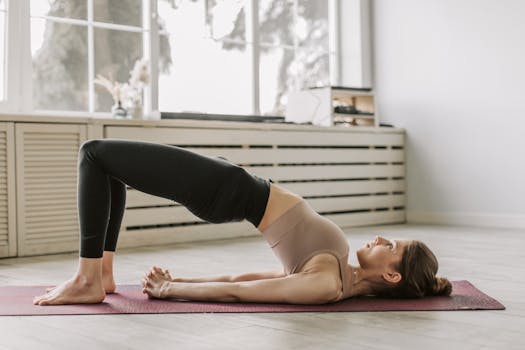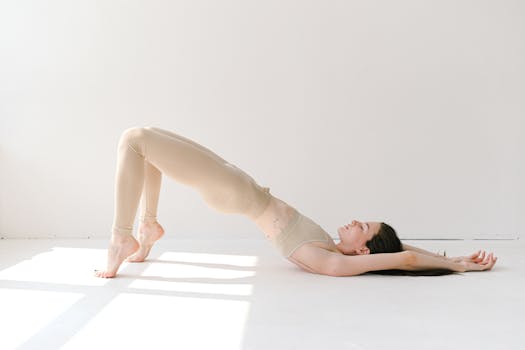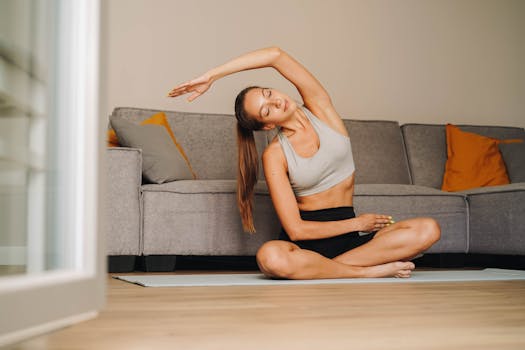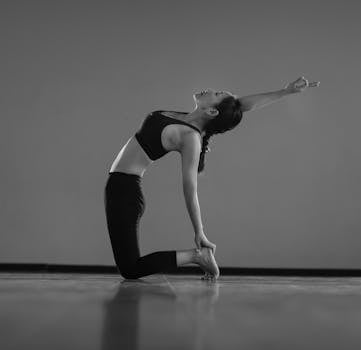
From Mat to Mind: How Yoga and Pilates Transform Your Mental Well-Being
Introduction to Yoga and Pilates for Mental Well-being

From Mat to Mind: How Yoga and Pilates Transform Your Mental Well-Being. As someone who’s struggled with anxiety and stress, I’ve found that yoga and Pilates have been a game-changer for my mental well-being. Not only do they help me relax and reduce stress, but they also improve my mood and increase my mindfulness. In this article, we’ll explore the benefits of yoga and Pilates for mental well-being and how you can incorporate them into your daily routine.
The Benefits of Yoga for Mental Well-being

Yoga is a powerful tool for transforming your mental well-being. By combining physical postures, breathing techniques, and meditation, yoga can help reduce stress and anxiety, improve mood, and increase mindfulness. Some of the key benefits of yoga for mental well-being include:
- Reduced stress and anxiety: Yoga has been shown to reduce the production of stress hormones like cortisol, leading to a decrease in anxiety and stress levels.
- Improved mood: Yoga can help increase the production of neurotransmitters like serotonin and dopamine, which can help improve mood and reduce symptoms of depression.
- Increased mindfulness: Yoga helps you develop greater body awareness, which can translate to greater mindfulness in daily life. This can help you stay present and focused, reducing worries about the past or future.
The Benefits of Pilates for Mental Well-being

Pilates is another form of exercise that can have a profound impact on mental well-being. By focusing on core strength, flexibility, and body control, Pilates can help improve mood, reduce stress, and increase mindfulness. Some of the key benefits of Pilates for mental well-being include:
- Improved mood: Pilates can help increase the production of neurotransmitters like serotonin and dopamine, which can help improve mood and reduce symptoms of depression.
- Reduced stress: Pilates can help reduce stress and anxiety by releasing tension in the muscles and promoting relaxation.
- Increased mindfulness: Pilates requires focus and concentration, which can help increase mindfulness and reduce mind-wandering.
Incorporating Yoga and Pilates into Your Daily Routine

So how can you start incorporating yoga and Pilates into your daily routine? Here are some tips to get you started:
- Start small: Begin with short practices, such as 10-15 minute yoga or Pilates sessions, and gradually increase the duration as you become more comfortable with the exercises.
- Find a studio or class: Look for local yoga or Pilates studios that offer classes for beginners. This can be a great way to learn the basics and get feedback from an instructor.
- Practice at home: There are many free yoga and Pilates classes available online, or you can purchase DVDs or streaming subscriptions to practice at home.
- Make it a habit: Try to practice yoga or Pilates at the same time each day, so it becomes a regular part of your routine.
Conclusion

From Mat to Mind: How Yoga and Pilates Transform Your Mental Well-Being. As you can see, yoga and Pilates offer a wide range of benefits for mental well-being, from reducing stress and anxiety to improving mood and increasing mindfulness. By incorporating these practices into your daily routine, you can experience the transformative power of yoga and Pilates for yourself.






